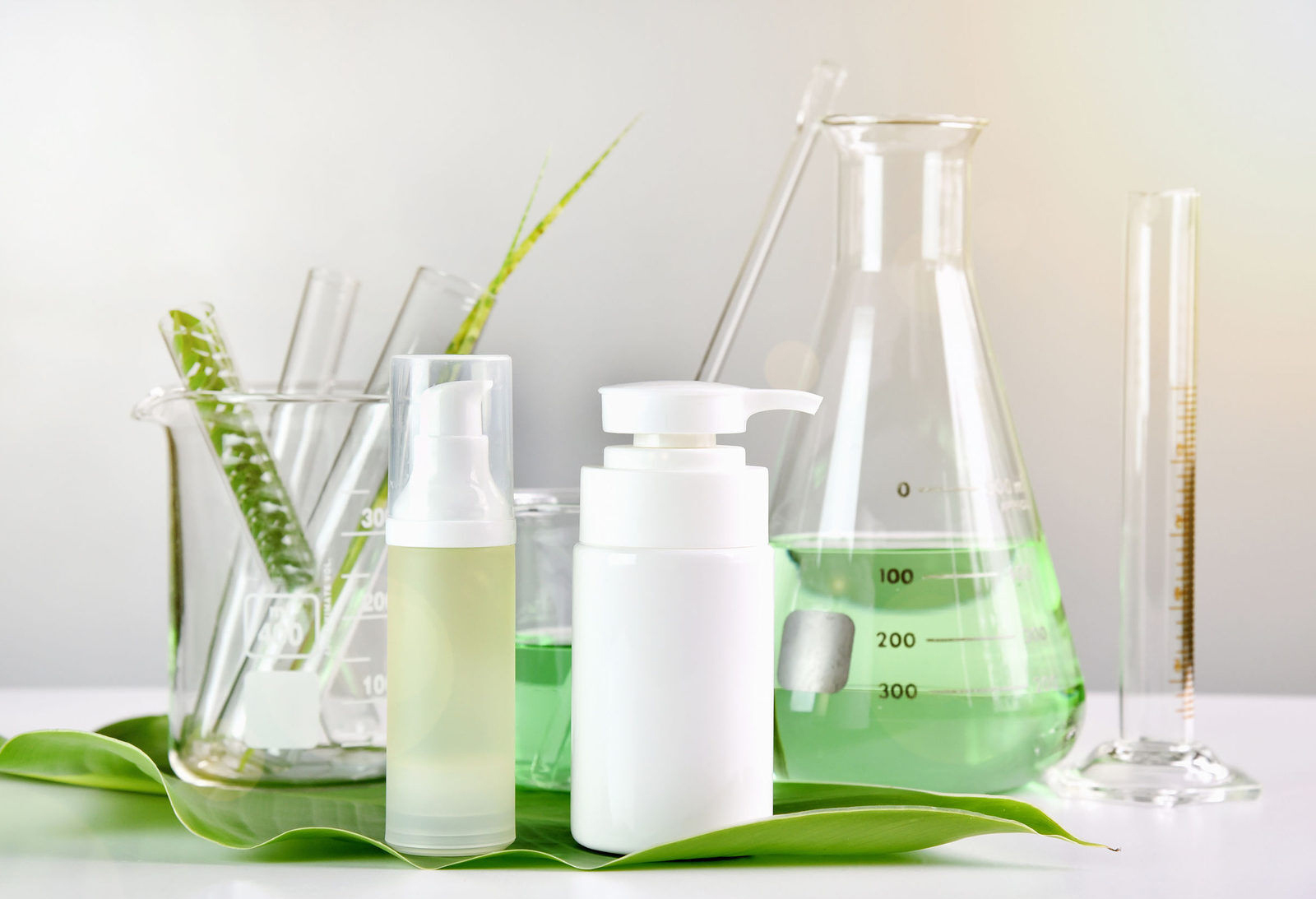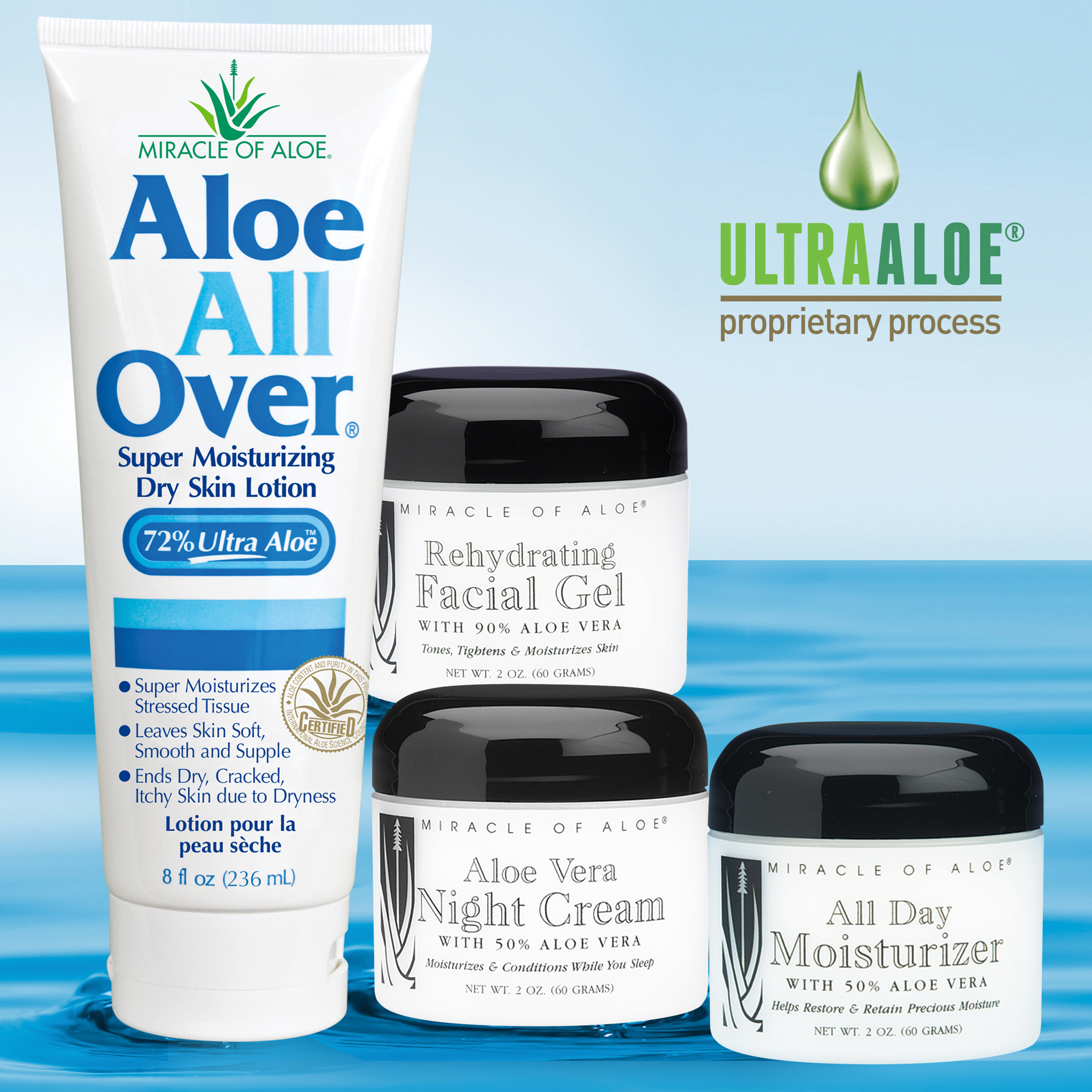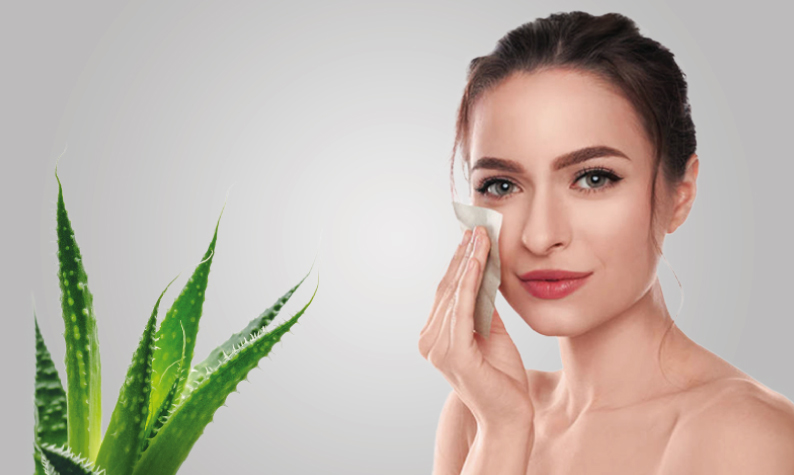What to Know About Alcohol and Your Skin: Dos and Don’ts
When you check the ingredients, you are likely to spot one or more types of alcohol in skin care products. However, not every formula that contains alcohol is astringent or drying and stinging. Various alcohols affect the performance and texture of skin care products and can provide lasting benefits when you choose the right formulas for your skin type. Find out everything you need to know about why many skin care treatments contain alcohol.
 Why Is Alcohol in Skin Care Products?
Why Is Alcohol in Skin Care Products?
Different types of alcohol can improve the performance of skin care products or enhance the way that treatments feel on your skin. The type of alcohol in a formula often indicates the reason why this ingredient is included in skin care.
Denatured or simple alcohols can help other ingredients dissolve in water, promote the penetration of active ingredients such as retinol or vitamin C, or create a light product texture. These types of alcohol have low molecular weight and evaporate quickly.
Fatty alcohols have moisturizing, as opposed to drying, properties. This type of alcohol in skin care products is used to keep mixtures of oil and water from separating. Forms of alcohol that have high molecular weight achieve heavier or thicker textures for skin care products.
What Types of Alcohol Are in Skin Care Formulas?
Several types of alcohol are common and safe ingredients for topical use on skin. Here are a few alcohol ingredients that you are likely to find in many skin care formulas:

- Denatured
- Ethyl
- Isopropyl
- Cetearyl
- Cetyl
- Stearyl
Denatured alcohol or any form of SD alcohol is treated with denaturants that add a bitter taste to discourage ingestion. Formulations specified by governmental regulations keep alcohol used in skin care from being taxed like alcoholic beverages.
Ethyl and isopropyl alcohol are other types of simple alcohols or solvents. Ethyl alcohol is another term for ethanol or grain alcohol (the type you can drink). Isopropyl alcohol is best known by the household name "rubbing alcohol" and has astringent and anti-foaming properties.
Cetearyl, cetyl, and stearyl alcohol are all types of fatty alcohols. These ingredients have emollient and humectant properties, meaning that fatty alcohols create a barrier over the skin that preserves moisture and draws in even more hydration.
What Are the Effects of Alcohol in Skin Care?
The types of alcohol in a skin care product determine the effects that these ingredients have in a treatment and on your skin. Simple alcohols create lightweight, fast-drying products that dissolve dirt, reduce oil levels and can have antibacterial properties.

Fatty alcohols produce thick, luxurious-feeling products. These products can make dry, cracked skin feel softer and are often a better choice to rejuvenate sun-damaged skin and reduce visible signs of aging.
Many skin care products contain more than one type of alcohol. The order of the list of ingredients corresponds to the amount of each ingredient in a product. Products for which an alcohol appears near the top of the ingredient list typically contain more of that alcohol than when it is further down the list.
Is the Alcohol in Skin Care Safe for All Skin Types?
In general, skin care products that contain simple alcohols are suitable for occasional or regular use on oily or normal skin. It is still important to be aware of the potentially drying effects of alcohol, SD alcohol, ethyl and isopropyl alcohol. Other ingredients in formulas
can counteract these effects, so you should consider all of the ingredients in a product.
If you have oily skin, you may appreciate the mattifying qualities of simple alcohol in skin care products. You should be aware that stripping too much natural oil from the skin can lead to barrier damage, dryness and the overproduction of sebum or natural oil to compensate for lost moisture.
Fatty alcohols can benefit all types of skin and are best for dry skin. It is still worth noting that these ingredients are often derived from coconut, palm or other plant oils that can clog pores. If you have very sensitive skin, you could experience irritation resulting from either type of alcohol.
Should You Look Out for Alcohol in Skin Care?
Skin care products that are approved for sale contain safe amounts of alcohol. You may still want to make sure that the products you try contain the best type of alcohol for your skin.
If you have dry or sensitive skin, check the ingredients lists for drying alcohols, such as denatured alcohol. Products that contain one or more types of fatty alcohol should not dry out your skin. For example, moisturizing and conditioning Miracle of Aloe Aloe Vera Night Cream contains cetearyl alcohol, ceteareth-20 and cetyl alcohol.
The National Rosacea Society refers to cetyl, cetearyl, lauryl or stearyl alcohols as being "common harmless alcohols" for people with skin inflammation. Even if you have sensitive skin, you may be able to use products containing small amounts of astringent alcohol.
What Does Alcohol-Free Mean in Skin Care Products?
Products that are labeled "alcohol-free" do not contain ethyl alcohol. If you want to avoid astringents, you should also look out for SD alcohol and alcohol denat, which can be denatured ethyl alcohol.

A common source of confusion stems from the fact that fatty alcohol can be an ingredient in alcohol-free formulas. These types of alcohol in skin care have moisturizing and soothing properties and are much less likely to contribute toward irritation than simple alcohol.
If you are concerned about irritation, it is also worthwhile to consider whether a formula contains other potential irritants such as fragrances and parabens. As with astringent alcohol, the amount of these ingredients in a formula can be a significant factor in the risk of a reaction.
What Should You Know About Alcohol in Skin Care?
The main thing to keep in mind about alcohol ingredients in skin care products is that each type of alcohol can have unique effects on the skin. Factor in the type of alcohol in skin care and where one or more types of alcohol appear in the list of ingredients. Select the best Miracle of Aloe treatments for your skin today.
Sources:
https://www.everydayhealth.com/smart-skin/alcohol-in-skin-care-is-it-ever-okay/
https://www.self.com/story/alcohol-in-skin-care-products
https://www.cosmeticsinfo.org/ingredients/sd-alcohol-39-c/
https://www.medicalnewstoday.com/articles/cetearyl-alcohol
https://www.rosacea.org/blog/2019/march/separating-good-bad-alcohol-rosacea-skincare
https://www.fda.gov/cosmetics/cosmetics-labeling-claims/alcohol-free

 US Dollars
US Dollars
